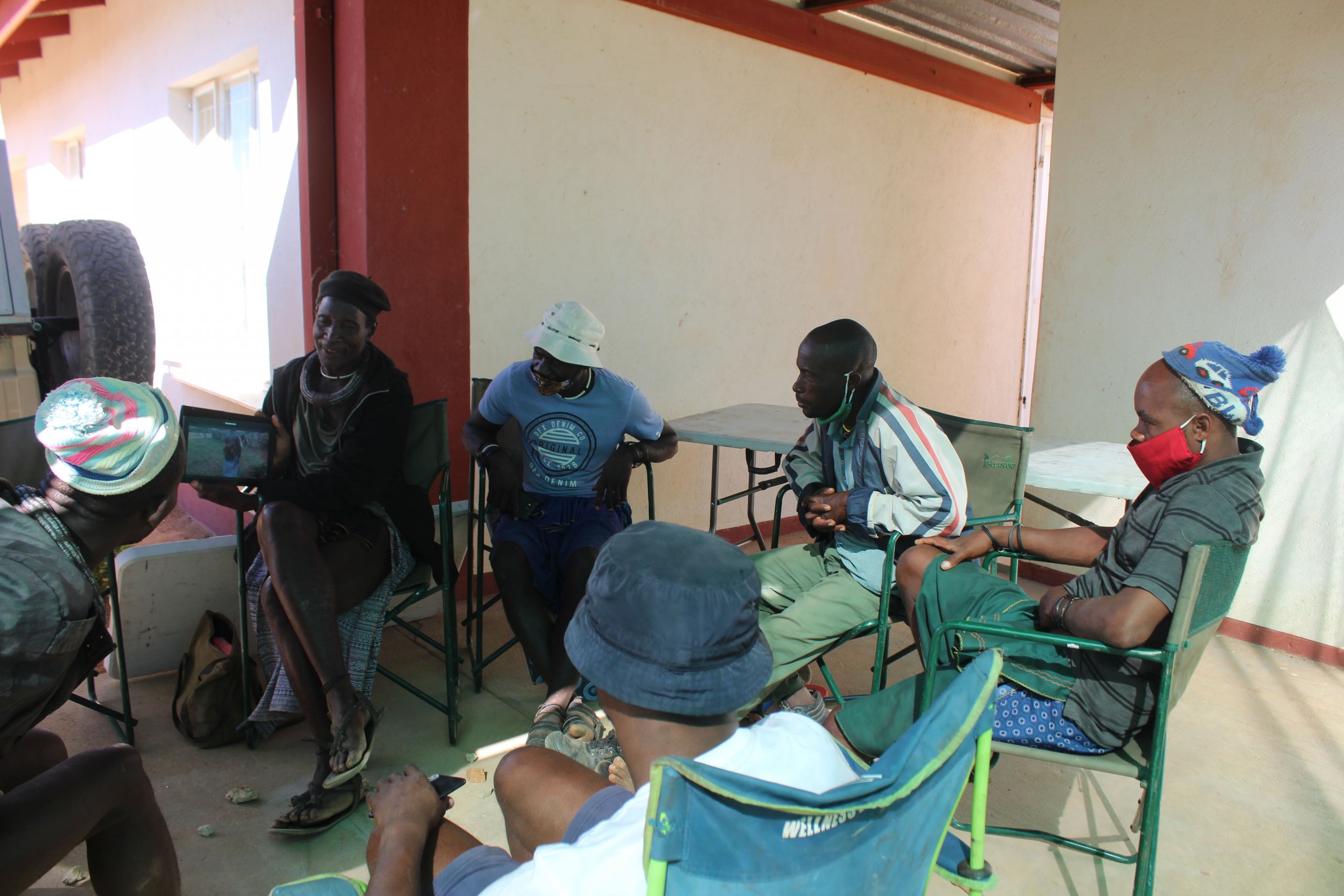IK, SCIONA and knowledge sharing
Researchers under the IK cluster, led by Professor Heike Winschiers-Theophilus, traveled to Epupa and Okanguati from the 20 to 26 July 2020 as part of their explorations and research work under the SCIONA project (sciona.nust.na). One of IK cluster’s long-time collaborators, Uariehike Mbinge, was part of the trip as well.
During the trip several activities were undertaken, primarily ethnobotanical walks, where local community plant experts were able to showcase different plants in their area. During the ethnobotanical walks the plant experts used tools that were developed for data collection to record essential data about the plants that were spotted. Thereafter, the plant experts gave feedback on their experiences whilst using the tools. The feedback will be used to appropriate the tools, so that they fit the local context in which they will be used. An activity of note was the participatory mapping, during which community members and SCIONA researchers explored how to best represent their environment and context on maps.
Whilst engaging the Epupa and Okanguati community members, as part of indigenous knowledge sharing and preservation, Mr Mbinge shared the experiences that he gained from the collaborations with the IK cluster with the community members in Epupa and Okanguati. In actual fact, he showcased some of the videos that he captured with the Media Collector Tool, a tool co-designed with local indigenous communities for data and knowledge collection. The videos captured traditional rites, traditional plants and their uses, as well as daily activities undertaken by the Ovahimba people as part of their indigenous lifestyles. The community members marvelled at the content that Mr Mbinge captured, and they indicated that they want a similar tool, so that they can record and share their indigenous knowledge. Mr Mbinge specifically mentioned that he enjoys recording and capturing rites and indigenous activities, as through such recordings one is able to preserve and share their knowledge with others. He further mentioned that he is willing to teach others how to capture and collect their own indigenous information and knowledge.

